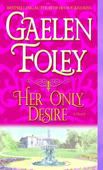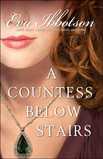 The Grand Sophy by Georgette Heyer is a classic in the romance genre, and for me, my first Heyer novel in general. It is the story of the irrepressible Sophia Stanton-Lacy, who enters the world of her relatives Lord and Lady Ombersley and their children—and in particular, the life of her orderly cousin Charles Rivenhall—and turns everything upside down, generally for the good of those around her.
The Grand Sophy by Georgette Heyer is a classic in the romance genre, and for me, my first Heyer novel in general. It is the story of the irrepressible Sophia Stanton-Lacy, who enters the world of her relatives Lord and Lady Ombersley and their children—and in particular, the life of her orderly cousin Charles Rivenhall—and turns everything upside down, generally for the good of those around her.
Sophy is a wonderful heroine who never enters the realm of being TSTL despite her fixation on messing with the world around her. She is capable and independent, and is one of the few heroines I’ve encountered who truly does not worry over how others see her. Her predilection for scheming, however, is usually seen through by Charles Rivenhall, the eldest of the Rivenhall children. Normally responsible and staid, the entrance of Sophy shifts the axis of Charles’ world the most in the story, usually involving him losing his temper quite often with Sophy. In the end, however, with Sophy’s schemes coming to a climax, Charles finally recognizes his love for her, despite also wanting to wring her neck from sheer frustration.
One of the best aspects of this book was the sheer Regency-ness of it: you truly felt like you had been transported back 200 years. So many historicals lately seem more like contemporary characters dressed in costume, yet Heyer’s worlds are permeated with details about life during that time, not to mention the dialogue that is used (and yet never comes off as awkward or forced). The second greatest part of her story was each and every character. Not one is simply a cardboard cutout designed to fill in space: from Sophy’s lackadaisical father to Charles’ snobbish fiancée, each character leaps off of the page. And, believe me, there are a bunch of characters in this story, yet not one is without personality or individuality.
The only problem I had with The Grand Sophy was Charles Rivenhall. Throughout the entire story, it seemed as if he was always yelling, which is especially shown through Heyer’s predilection for many exclamation points in dialogue. Charles feels unmanned by Sophy and loses his temper with her often, yet so much of the book was him yelling at her (or at least exclaiming) that reading it was rather tiring. Sometimes I just wanted to tell Charles to take a deep breath: he always seemed about to explode every time he came onto the scene. Even by the end of the story, he’s close to strangling Sophy from sheer frustration when he asks her to marry him. Granted, Sophy is probably the only one who could see through his temper and not be offended by his insults. But I’ve never encountered a hero more prone to apoplexy. This was the only aspect of the book that I had a hard time liking.
Overall Grade: A-
 The Grand Sophy by Georgette Heyer is a classic in the romance genre, and for me, my first Heyer novel in general. It is the story of the irrepressible Sophia Stanton-Lacy, who enters the world of her relatives Lord and Lady Ombersley and their children—and in particular, the life of her orderly cousin Charles Rivenhall—and turns everything upside down, generally for the good of those around her.
The Grand Sophy by Georgette Heyer is a classic in the romance genre, and for me, my first Heyer novel in general. It is the story of the irrepressible Sophia Stanton-Lacy, who enters the world of her relatives Lord and Lady Ombersley and their children—and in particular, the life of her orderly cousin Charles Rivenhall—and turns everything upside down, generally for the good of those around her.





1 comment:
This is great info to know.
Post a Comment